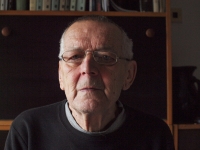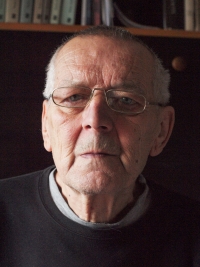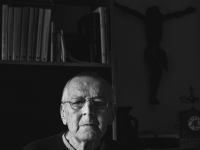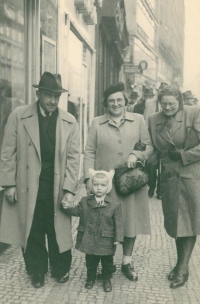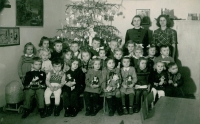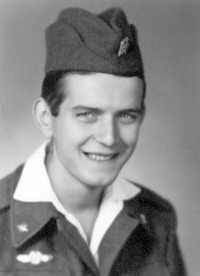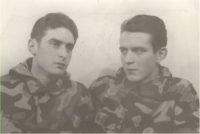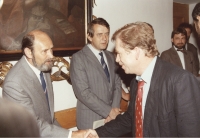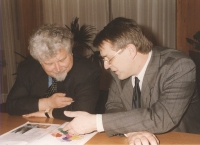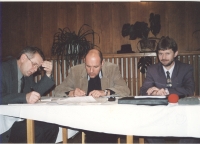What happened to me has affected thousands of other people
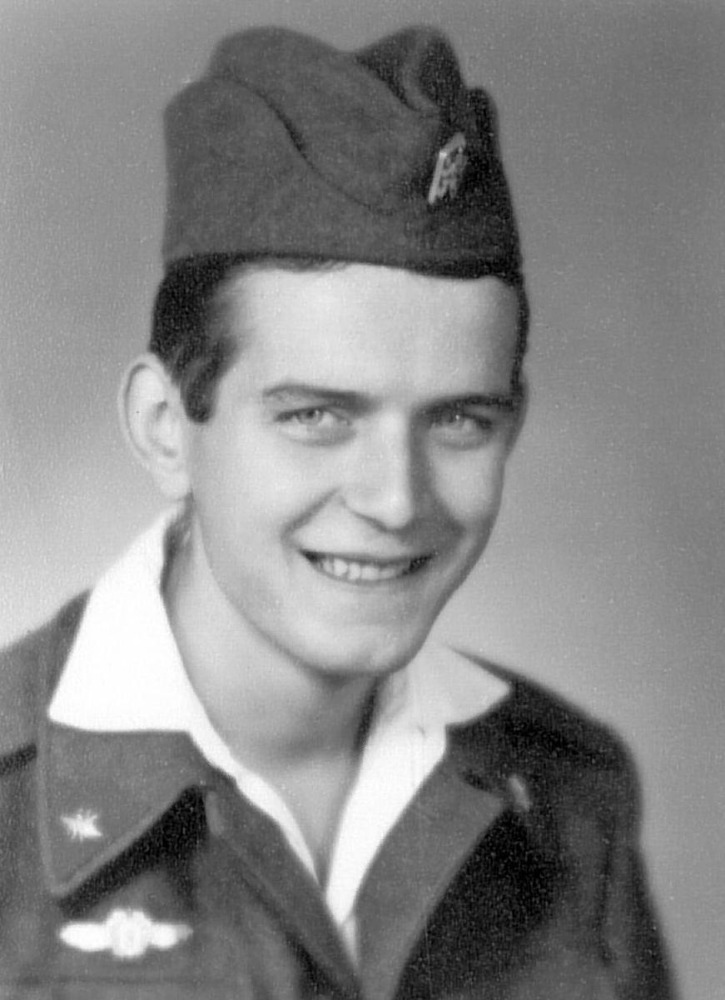
Download image
Oldřich Zadražil was born in Telč on 23 November 1944 as the son of Jakub Zadražil and Anna Zadražilová. As a member of the Orel Catholic sports organisation, his father was arrested at the beginning of World War II and imprisoned in Waldheim, Germany for three and a half years for distributing resistance leaflets. He continued his Orel activities after the war and led a Harvest Festival parade in 1947 which included an allegorical float that mocked the Communist Party. Due to this, Oldřich was not admitted to grammar school, getting an unfavourable cadre profile from the headmaster who had known his father since childhood. He started working as an apprentice toolmaker and after obtaining his vocational certificate in 1960 went to work at Motorpal in Telč. Within five years, he obtained his high school diploma and completed two years of military service, leaving in 1965 in the lance corporal rank. Oldřich Zadražil progressed from the tool shop to an office as a process specialist during the normalisation period, meeting and establishing a lifelong friendship with Miloš Vystrčil, the final owner of the factory which was nationalised by the communists in 1948. During the Velvet Revolution, Oldřich Zadražil edited the Telčské listy information paper during the revolution. In 1990, he was elected to the town council as an independent candidate and served as a councillor and then secretary until retirement in 2005. He also held the post of town chronicler until 2004. At the time of the interview Oldřich Zadražil lived with his wife Marie in Telč.
